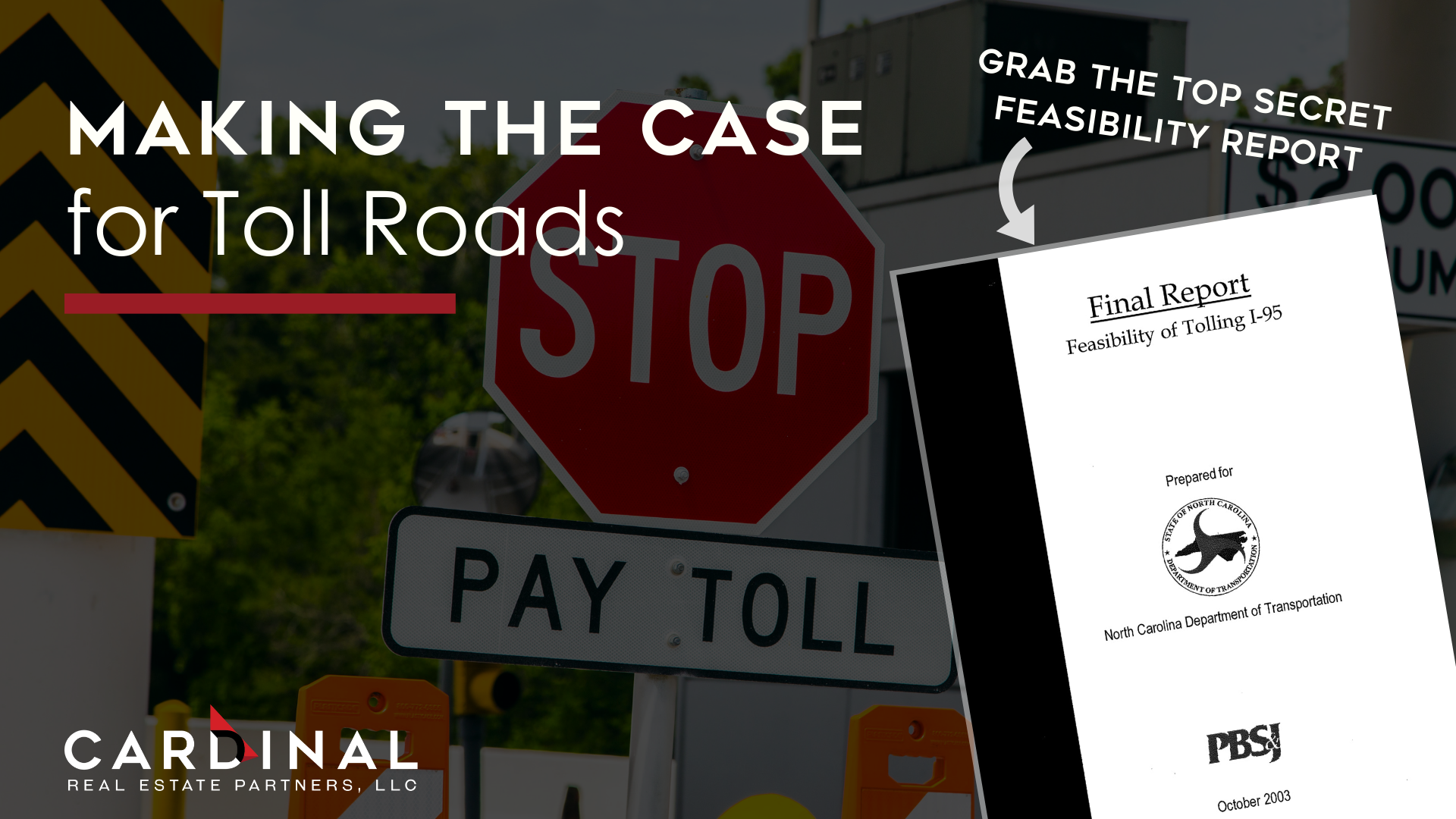Traveling to Backwoods Quail Club in Reams, S.C. the other day for my annual quail hunt with my father-in-law and son, the travel app Waze sent us on a new path. In the past, Waze has always given me the same directions, but this time it told me to drive out Independence Boulevard.
I’m pleased to see that the Monroe connector is the fastest way to get to the Georgetown area of South Carolina. I served two terms on the N.C. Turnpike Authority in early 2000, and I remember leaving this exact hunt trip to attend a board meeting in Raleigh. I also remember thinking at that time that we’d never get the “Monroe Connector” toll road built, so it was a joy as I found myself zipping along 75 mph, bypassing 23 stoplights to arrive at my destination 20 minutes faster and with less fatigue than in previous years.
It’s time for the Tar Heel state to seriously consider tolling interstate 95. Despite what people say in North Charlotte, toll roads have many advantages.
When the turnpike authority began, the first project we studied was the feasibility of tolling I-95. NC DOT spent nearly $250,000 in 2003 with PBS&J, a consulting and engineering, firm to get an extensive “cost and revenue” study done for this project. The report indicated that tolling I-95 was a very strong candidate for tolling, but former Governor Mike Easley and other political types in eastern North Carolina shot it down.
I still have the study, and I believe it’s the time to brush it off and use it to move forward. I think it’s time to share the once-secret report.
Advantages of an I-95 toll road:
- It will provide a dedicated revenue source for desperately needed improvements to I-95; revenues would be adequate to cover the cost of widening the road.
- It would generate revenue from out-of-state travelers who may travel through the state without paying for gasoline taxes.
- It would add to eastern North Carolina’s attractiveness for industrial recruiting and relocation as it would allow for better accessibility.
- It would provide for needed safety improvements along I-95 in a timely fashion.
- It would relieve the demand on federal and state highway fund revenues dedicated to I-95 to be spent elsewhere in NC.
- It would generate excess revenue that could support other transportation improvements throughout the state.
The disadvantages that our former governor pointed out were the following:
- North Carolina residents who pay the tolls and state taxes would see this as double taxation.
- Lower-income North Carolinians might not be able to afford these “Lexus lanes”.
- Traffic diverting I-95 to not pay tolls may increase congestion on US 301.
The NC Turnpike Authority had a sophisticated way of looking at the feasibility of respective toll projects and took into account many different sources of information to come up with a feasibility ratio.
We considered any feasibility ratio over 70 to be strong candidates for toll financing. The I-95 project scored an 81, which was the highest ratio of any of the projects we were considering.
I know there’s been grumbling over The Triangle Expressway, aka N.C. 540. That road is another example of a poor political decision. There were projections of huge increases in housing, new growth and higher density, and a lot of the engineering work had already been done. And it’s my belief that DOT projects in Raleigh get done faster than projects in other parts of the state. It shows how you can’t get politics out of the N.C. Department of Transportation no matter how hard one tries. And yes, traffic counts for N.C. 540 are low. Still, N.C. 540 brought in $44 million last year, ahead of forecasts, according to this article at www.longleafpolitics.com.
Former Governor Mike Easley interfered with the expansion of I-95 20 years ago. Let’s not let that happen again on the best project North Carolina has for tolling.
[convertkit form=850640]







